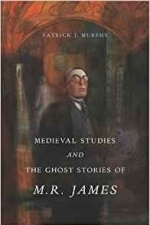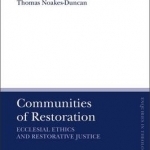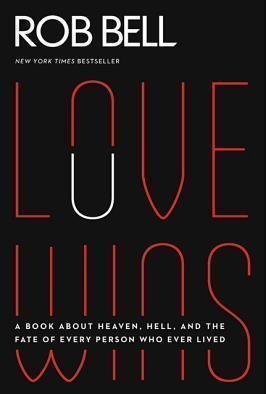The Grand Canyon, Monument to an Ancient Earth: Can Noah's Flood Explain the Grand Canyon?
Book
Young Earth advocates often use the Grand Canyon as a showcase to argue not only that the thick...

Winifred Knights 1899-1947: Lost Artist of the Slade School
Book
Winifred Knights (1899-1947) is one of the outstanding, but until recently neglected, British women...

Assassination Vacation
Book
Sarah Vowell exposes the glorious conundrums of American history and culture with wit, probity, and...
non-fiction

Medieval Studies and the Ghost Stories of M.R. James
Book
Montague Rhodes James authored some of the most highly regarded ghost stories of all time--classics...
Horror

Berlin Alexanderplatz
Book
The great novel of 1920s Berlin life, in a superb new translation by Michael Hofmann Franz...

The Centurion's Wife (Acts of Faith, #1)
Book
Janette Oke has dreamed for years of retelling a story in a biblical time frame from a female...
There are a few major errors in Love Wins, which leads to his making other more minor mistakes. The first error is giving precedence to certain biblical themes (to the exclusion of others) over clear and specific biblical teaching. Bell makes much of themes like restoration in Scripture, but ignores themes of final punishment. By dwelling on those themes, he can transition to reading them into texts where they don't belong without being found out by biblical illiterates, such as Jesus' claim that Sodom and Gomorrah will fare better on the day of judgement than cities which rejected the direct revelation of God in Jesus Christ. Instead of reading this in its obvious sense-- that there are degrees of punishment on the final day and those who reject direct revelation of Jesus will suffer most-- he understands Jesus to be saying that there is a great deal of hope for Sodom and Gomorrah's salvation-- that their punishment was corrective instead of destructive. Even though he doesn't get anywhere close to proving his case (certainly only God knows whether or not some in Sodom will be saved, but the story of Abraham bargaining would suggest otherwise), he seems to fall back on the emotionally-driven claim that God saving everyone is a "better story" than damning some and saving others.
On his overuse of the word "story," it is one example where Bell is obnoxiously post-modern and emergent. He uses the word "story/stories" in his short book 138 times. For a book of around 200 pages, large font, and constantly skipped lines/single words on their own lines*, that's an impressive display of post-modernism.
Another major error is that he conflates a strong exclusivism with eternal conscious punishment which has the effect that when he attacks one, he is in effect attacking the other, making his job easier. In addition, he ignores annihilationism as an alternative to eternal conscious torment, which also strengthens the emotional pull of his position, since it is contrasted with an eternal conscious punishment where God damns people for never being able to hear the name of Jesus. (note: while I am annoyed at Bell's misrepresentations of eternal conscious torment, I am myself an annihilationist)
Bell explains that God will eventually win everyone over, but it must be of their accord. However, he doesn't explain how it is that everyone will be saved of their own free will. For emotional effect, Bell criticizes the eternal conscious hell camp with having a God that would turn his back on people in hell who are repenting and turning to God. Of course, this assumes that sinners turn to God on their own instead of by His grace. Bell here appears to be a Pelagian, or else doesn't know enough about soteriology to make such distinctions (a terrifying prospect for a Pastor). In any case, this is another example where he is misrepresenting eternal conscious hell proponents (the first I mentioned was when he claimed they were all strict exclusivists), which makes his book far harder to take seriously.
One strange and interesting point that Rob Bell makes comes from making the afterlife analogous to the parable of the prodigal son. He claims that hell is not being cast out of "the party," (despite Jesus' parable about the marriage supper being like a party where people are cast out of) but being at the party but not enjoying it. "Hell is being at the party," Bell claims. The message to take from that is never go to one of Rob Bell's parties.
*Bell's book is filled with skipped lines and one word sentences sitting on their own lines. I suppose this is done for dramatic effect-- indicating places where Bell would pause if this were one of his Nooma videos. However, it tends to just look irritating and faux artsy. I mostly listened to the book on Kindle's text-to-speech feature, and I could still tell when he was doing it. Like,
You put a series of short sentences on their own lines to make a point?
Really?
You do that?
And it's repetitive?
Extremely?
And annoying?

Communities of Restoration: Ecclesial Ethics and Restorative Justice
Book
By bringing together the insights of ecclesial ethics, an approach that emphasizes the distinctive...
Holy War, Martyrdom, and Terror: Christianity, Violence, and the West
Book
Holy War, Martyrdom, and Terror examines the ways that Christian theology has shaped centuries of...

NIV Popular Cross-Reference Black Leather Bible: 1
Book
With over 400 million Bibles in print, the New International Version is the world's most popular...

